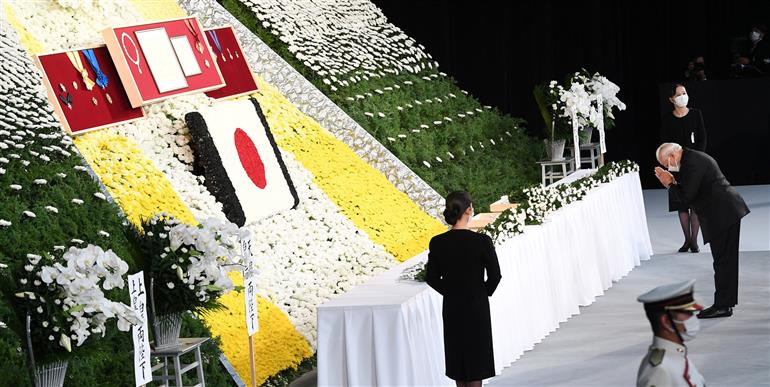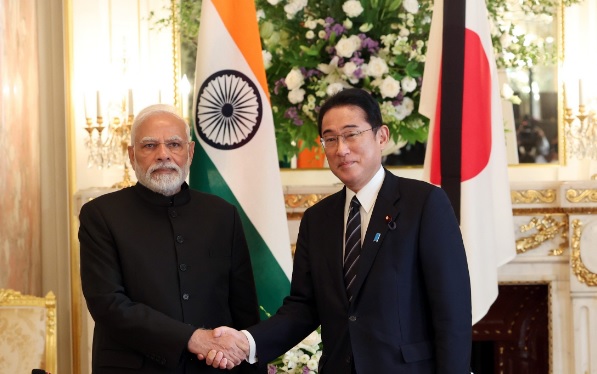For a pacifist nation like Japan, the assassination of Shinzo Abe would have been painful but the public outrage during the funeral is astounding in view of the state funeral at a cost of 1.7 billion yen ($12 million) at a time when the government is heavily indebted.
Former Japanese Prime Minister Shinzo Abe was assassinated during the campaign trail in July and the government’s plans to a state funeral have been opposed by many since then owing to the country’s fragile economy.
Japan’s prime minister Fumio Kishida has been unable to assuage public concerns as the controversy undermines his proposed record defense spending, which began with Shinzo Abe, whose legacy is left behind with the revision of the country’s post-war Pacifist Constitution and sending Japanese armed forces abroad.

PM Kishida’s approval ratings have reached the lowest level since he became the country’s Prime Minister in October. Last week, a man has allegedly set himself on fire near the office of Japanese Prime Minister protesting against the expensive state funeral.
The funeral on Tuesday kept the capital under maximum security due to protests which began just before the funeral. About 4,300 attendees gathered in Tokyo to pay their respects at the funeral.
U.S. Vice President Kamala Harris, Australian Prime Minister Anthony Albanese, Indian Prime Minister Narendra Modi and South Korean Prime Minister Han Duck-soo were among 700 foreign dignitaries from 218 countries, regions and international organizations who attended the funeral.

